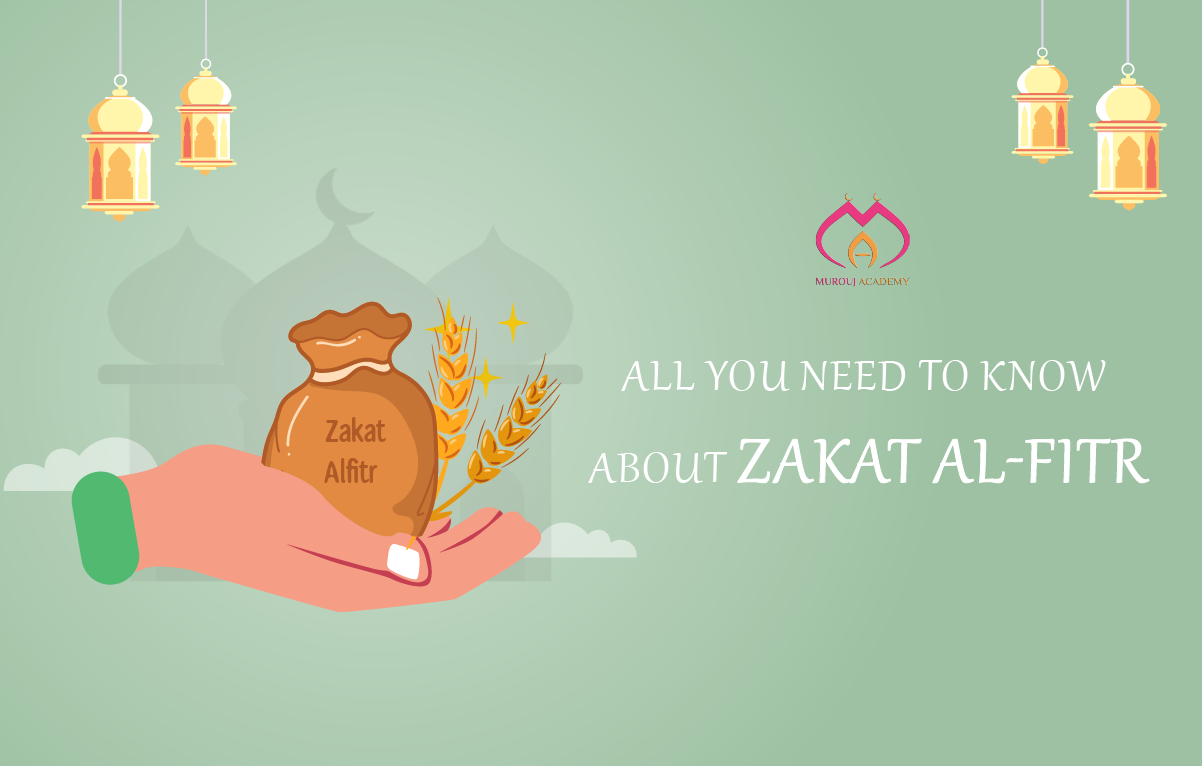Zakat is the third pillar of Islam, On the authority of Abdullah, the son of Umar ibn al-Khattab (ra), who said: I heard the Messenger of Allah (ﷺ) say, “Islam has been built on five [pillars]: testifying that there is no deity worthy of worship except Allah and that Muhammad is the Messenger of Allah, establishing the salah (prayer), paying the zakat (obligatory charity), making the hajj (pilgrimage) to the House, and fasting in Ramadhan.” [Bukhari & Muslim].
And zakat al-fitr is one of the zakat obligatory on the Muslim, but unlike the zakat of money that is on a certain amount, which makes it exclusive to some Muslims only and not to others (those who possess the amount in which zakat is due and a year has passed), then zakat al-fitr is obligatory for every Muslim, whether he is rich or rich. Or poor, male or female, adult or child (details of how to pay zakat for each member of the family will follow).
The date of zakat al-fitr
The Muslim pays zakat al-fitr from sunset on the last day of Ramadan until the Eid prayer, and some scholars have permitted it to be paid before that time, but the most correct way out of the dispute is that zakat al-fitr is limited to this time, and that is why it was even called by this name. It is not permissible to delay it from the Eid prayer, as its way out is not sufficient in this case.
Ibn ’Abbas (RAA) narrated, ‘The Messenger of Allah (ﷺ) enjoined Zakat-ul-fitr on the one who fasts (i.e. fasted during the month of Ramadan) to purify him from any indecent act or speech and for the purpose of providing food for the needy. It is accepted as Zakah for the person who pays it before the Eid prayer and it is Sadaqah (i.e. voluntary charity) for the person who pays it after the Eid prayer.’ Related by Abu Dawud and Ibn Majah and Al-Hakim graded it as Sahih.
The amount of zakat Al-fitr
A Muslim does not pay zakat Al-fitr in the form of money, but rather it is given in the form of food – like grains – in the amount of a saa` for each individual from the predominant sustenance of the country in which he lives. And a saa’ is equivalent to approximately 2 and a half kilograms. If the majority of the country in which you live eats rice, for example, then you can choose the rice to take out as zakat al-fitr on behalf of you and your family or dependents. It was narrated that: Abu Sa’eed Al-Khudri said: “We used to pay Zakatul-Fitr when the Messenger of Allah was among us, one Sa of food, one Sa of dates, one Sa of barley, one Sa of sun-baked cottage cheese, one Sa of raisins. We continued to do that until Mu’awiyah came to us in Al-Madinah. One of the things he said to the people was: ‘I think that two Mudd wheat from Sham is equivalent to one Sa of this (i.e. dates).’ So the people followed that.”Abu Sa’eed said: “I’ll continue to pay it as I used to pay it at the time of Messenger of Allah for as long as I live.”
Those eligible for zakat al-fitr
Zakat on money is given to eight types of people, as stipulated in the Holy Qur’an in the verse (as in interpretation): The obligatory charity shall be only for the poor and the needy, and for those who work to collect it, and to influence hearts (to belief), for ransoming captives, and debtors in the Way of Allah and the destitute traveler. It is an obligation from Allah. Allah is Knowing, Wise. (AlTawba:60)
As for zakat al-fitr, scholars differed as to the possibility of disbursing it to one of these eight banks, or is it obligatory only for the poor and needy, and whatever opinion you work with, we believe that it will suffice on your behalf because the issue has a lot of talk among scholars without strong preference.
However, it is recommended that you pay zakat al-fitr in the form of food, not money, because this is what most Sharia scholars approved of and this is what the companions of the Messenger, peace be upon him, did. The entire amount of zakat can be given to one individual or to more than one individual, given the best fit for the recipient of zakat. The father is obligated to pay the zakat on behalf of his non-adult children, and the husband is obligated to pay it on behalf of his wife. The woman in general is obligated to pay her zakat to the one who provides for her, and there is no objection to her paying it on her own if she has money.
Zakat al-Fitr for those who do not have much
It came in Al-Rawd Al-Murabba’, mixed with its footnotes by Ibn Qasim, with some disposition: that is, zakat al-fitr is obligatory for every Muslim from the desert and others who are required to provide for himself, male or female, young or old, free or slave, who has surplus for him on the day and night of Eid A Saa’ of his strength and the food of his family in abundance, and the sheikh and others said: It is the view of the majority, and there is no instinct for the one who does not prefer a Saa’ in accordance with it, except for Abu Hanifa who said: It is not obligatory except for the one who possesses the Nisab or its value, in addition to his food, housing and the like, because that is more important and must be given precedence.
We ask God to accept fasting, qiyaam and zakat from us and from you.





